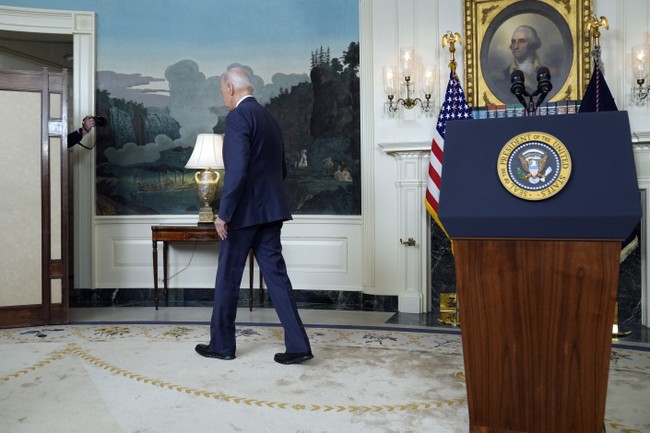Top News
YGBFKM. Biden Wants a Task Force on Classified Documents?

If, during his short stint on the Hill, George Santos had demanded the formation of a Truth and Honesty in Government Task Force, it couldn’t have been any funnier than this story from last night. President Joe Biden launched a new Presidential Records Transition Task Force. Its purpose will be to address the “systemic problem of mishandling classified information” during presidential transitions. They will study previous transitions and determine “best practices” for keeping classified information secure. Of course, since the task force will be comprised of people inside the executive branch who report to the person requiring the oversight, an obvious question arises. Who will be the one tasked with hanging the bell on the cat? (AP)
President Joe Biden on Monday launched a task force aimed at addressing the “systemic” problem of mishandling classified information during presidential transitions, days after a Justice Department special counsel’s sharply critical report said he had done just that.
The Presidential Records Transition Task Force will study past transitions to determine best practices for safeguarding classified information from an outgoing administration, the White House said. It will also assess the need for changes to existing policies and procedures to prevent the removal of sensitive information that by law should be kept with the National Archives and Records Administration.
The report from special counsel Robert Hur listed dozens of sensitive documents found at Biden’s home in Wilmington, Delaware, and at his former Washington office. The papers were marked as classified or later assessed to contain classified information.
The fact that we have problems with the security of classified information is obvious and it has been for some time. There are all sorts of issues when it comes to classification, overclassification, declassification, and all the rest. But do we really want any reforms being headed up by the guy who kept piles of secret information in his garage next to his prize Corvette? And if we’re being fair, we probably shouldn’t put Donald Trump on the job either.
Nobody in Washington wants to admit it, but this is now probably a challenge that is simply too big to tackle. There was a time when you might have been able to keep a handle on all of the confidential, secret, and top-secret documents floating around in Washington, but that was a different era. Back then, all of those documents were actual documents printed on paper, so it was theoretically possible to do it. Now, there are billions of pieces of classified information making the rounds every year that never make it to a printer. And digital data can find its way into the wild far more easily than trying to shove some memos into your underwear.
If the government wants to seriously address these issues (spoiler alert: they don’t), we could start with the fact that we classify vastly more material than we should and do so all the time. Yes, I’m looking at all of you people who keep refusing to turn over all of the Pentagon’s UFO records, but nobody really has clean hands in this particular mess. A huge swath of the classified material likely has nothing to do with actual national security concerns. It’s classified because these government weasels share a natural impulse to keep secrets from the public, most likely to either avoid personal embarrassment or to stop you from finding out what sort of skullduggery they’ve been up to. Why do you think there are still thousands of pages of JFK assassination files that have yet to be released?
We should be able to classify and hide the details of our most advanced military weapons systems if they give us an edge over our adversaries. We need to protect legitimate sources and methods that could expose our intelligence personnel to danger. But beyond that, nearly all classification schemes are at best pointless or at worst a danger to public confidence. Virtually everything should be available to the public in the National Archives. If the White House really desires a task force to review the transfer of classified material, put me in charge of it. I’ll have the total number of documents down below 1,000 by the end of the year.
Read the full article here


















